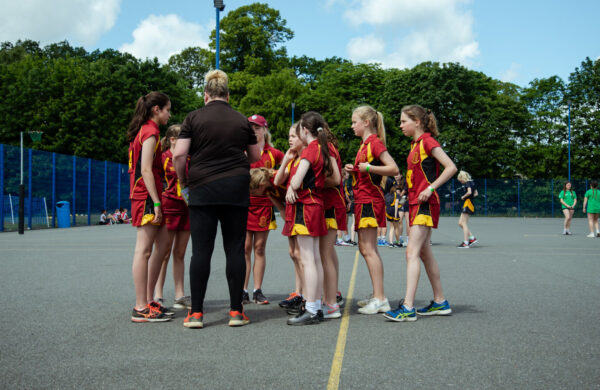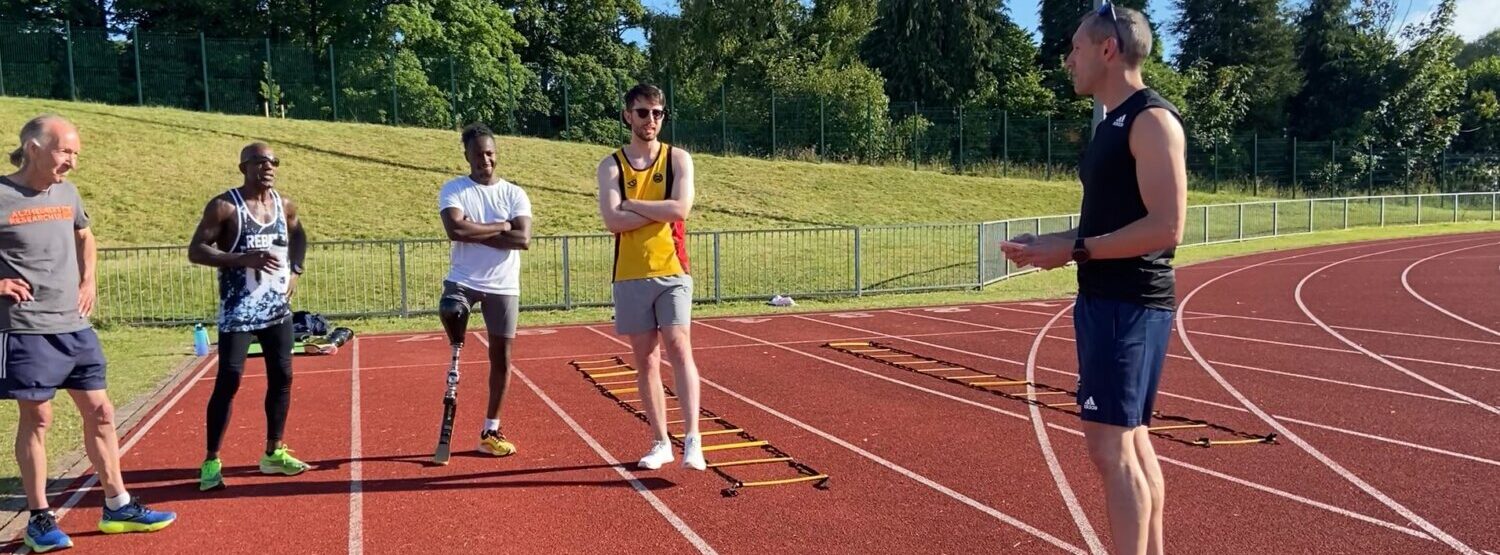
Workforce Bursary Scheme
Apply for Hampshire bursaries to develop your skills.

Date: 23 September 2025 Author: Energise Me
I’ve always loved athletics. I can still remember the buzz of my school’s sports day when I was 9 years old. I was standing on the start line, nerves going crazy as parents lined the track. I wanted to win that race more than anything… and I did!
From there, I represented my school at the district’s sport competition. This was a huge deal for me – I felt like I’d made it.
Then I joined my local athletics club (Verlea, which later became Herts Phoenix) and competed until my mid-20s, reaching a reasonable county-level standard. But as life moved on, I stepped away from the track for a few years – but still keeping involved in running through Parkruns and half marathons –until my friend Pete persuaded me to make a comeback when I was 38.
I entered an ‘open meeting’ – an event in which anyone can turn up, pay a few pounds to help fundraise for the club, and take part in a few official events. I did a 100m race and long jump, and instantly fell back in love with the track.
So, I joined the Basingstoke Athletics Club.
One of the biggest takeaways? Coaching isn’t just about what to coach, it’s about how to coach.
Not long after joining, a coach named Doug invited me to try his group. Doug had an assistant coach, Stacey, who stepped up when he left the club.
When Stacey couldn’t make it, I found myself helping more and more. By this point the group had people aged from 11 to 75 years old and all kinds of abilities. Eventually, with Stacey busy juggling life as a mum, I inherited the group.
Like many clubs, we were short on qualified coaches. Everyone’s a volunteer and no one gets paid. As I wasn’t officially trained, the club encouraged me to get a qualification. I’d been doing the sport for 30 years at this point, so it just felt right.
That’s when I was pointed in the direction of Energise Me.
The qualification process had two stages. First, I became an assistant coach which was a weekend course. Then I moved on to the Level 2 coaching qualification, which was much more involved.
There were online modules, a full weekend away, and an 8-week training plan to write and deliver. It took about four months to complete.
If I’m being honest, I went in thinking it would be a bit of a tick-box exercise. I’d been around athletics long enough to think I knew it all. But it really challenged me. In a good way!
One of the biggest takeaways? Coaching isn’t just about what to coach, it’s about how to coach.
I also learnt that you’ve got to put the athlete first. Everyone is an individual and not everyone responds the same way.
Before the course, I’d sometimes try to get athletes to work on too many things at the same time. I’d say things like “think about your knee lift, keep your back straight, drive your elbows back” all in one go. Understandably, it may have overwhelmed some people.
Now, I break it down. I focus on just one or two things per session and reassure my athletes: “Don’t worry about the rest. We’ll get to it next week.” It’s made a huge difference.
I also learnt that you’ve got to put the athlete first. Everyone is an individual and not everyone responds the same way. A few participants in my group thrive on clear, direct feedback, while other athletes respond better to praise rather than constructive criticism. So I adapt based on who I’m talking to; I’ll say, “You did that really well, now try this…” instead.
It sounds obvious now, but learning to coach the person, not just the sport, has made me a more effective coach.
Athletics is all about self-improvement, regardless of ability, and seeing people improve, grow in confidence, and just enjoy the sport is what makes coaching so rewarding for me.
The biggest challenge while getting my qualification? Time.
I’ve got a full-time job, a family, and I was already running a training group. Fitting in the coursework, planning sessions, and keeping everything ticking along wasn’t easy.
My advice to anyone thinking of doing the course would be: just keep going. Don’t let the work pile up or it becomes overwhelming. A little at a time really does help.
It’s the wins. But not just winning on races. Athletics is all about self-improvement, regardless of ability, and seeing people improve, grow in confidence, and just enjoy the sport is what makes coaching so rewarding for me.
One of my athletes had a long term injury which affected her ability to complete sessions. The day she completed an entire session pain-free for the first time, I was over the moon. Moments like that matter just as much as medals or Personal Bests.
Right now, I just want to keep my group motivated, coming back and loving what they do. Some of the athletes in the group have competitions coming up and I want to support them getting ready.
Longer term? I’d love to qualify as a Jumps coach. Long jump was always my best event as an athlete.
Whether you’re just starting out or already leading sessions, the right training can boost your skills, confidence and impact. Through our Workforce Bursary, we’ve supported coaches, instructors and volunteers to gain qualifications so they can continue to provide positive, engaging activities.
Or check out our other workforce development opportunities to enhance your skills.